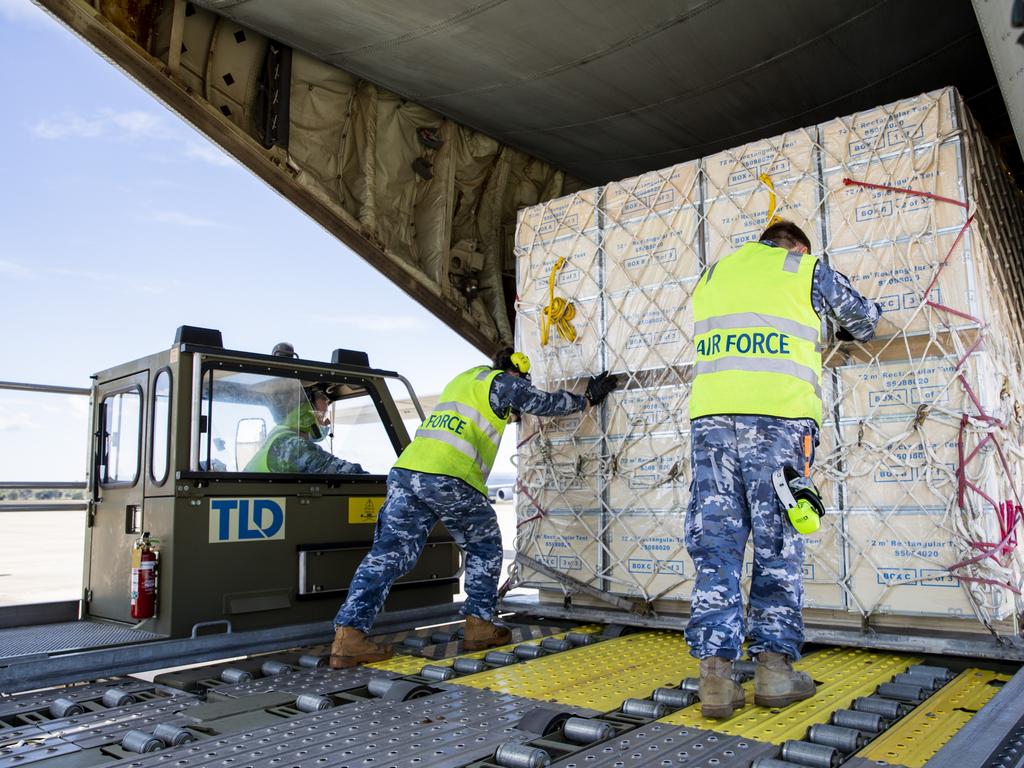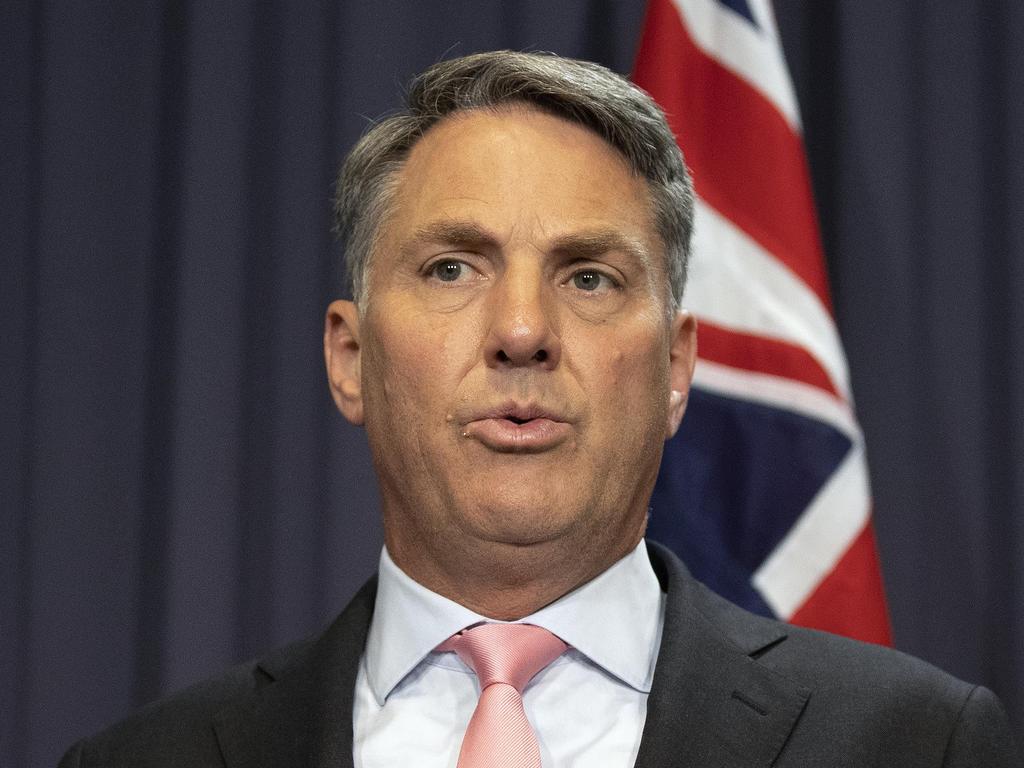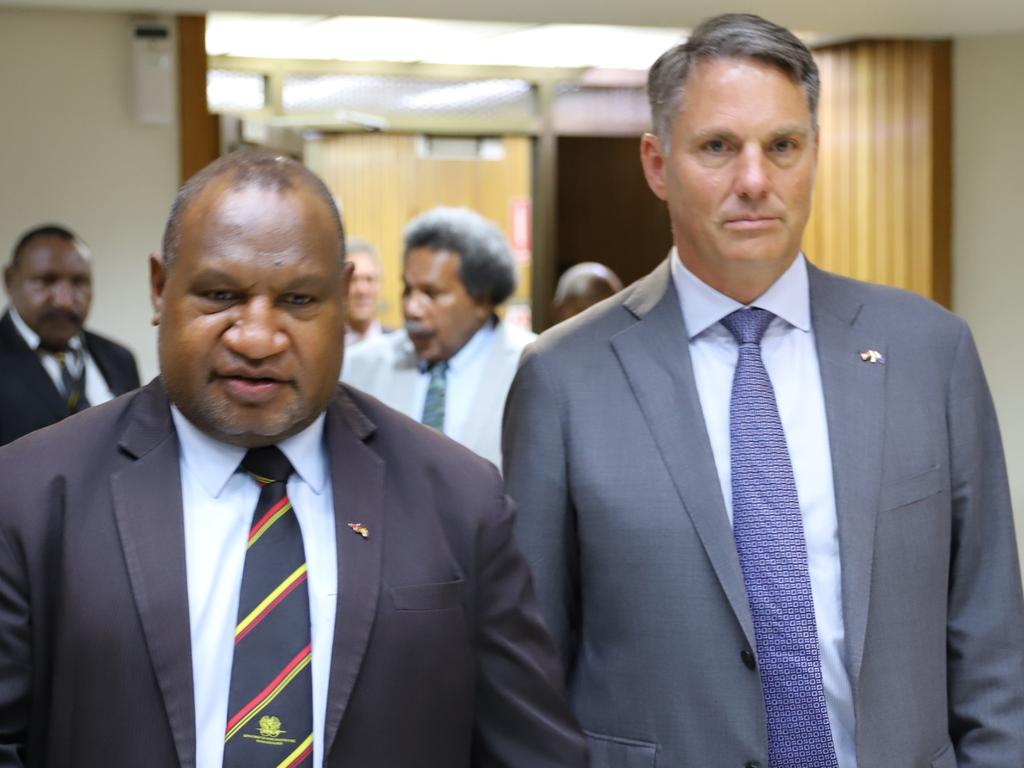Whoever holds power in the US is committed to our region
Amid a glut of bad global trends, strategic and economic, and on the eve of the US midterm elections, Arthur Sinodinos has a good news story to tell.
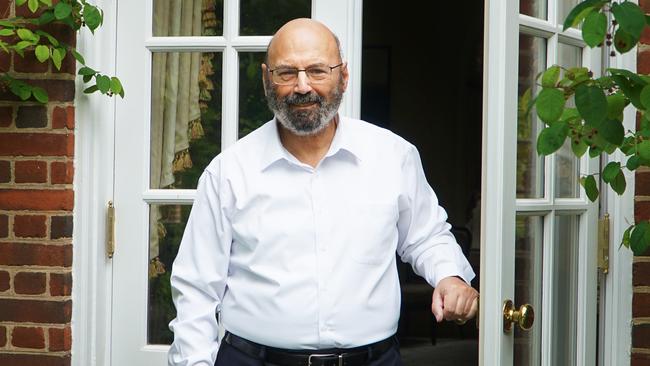
Amid a glut of bad global trends, strategic and economic, and on the eve of the US midterm elections, Arthur Sinodinos has a good news story to tell.
Australia’s ambassador to Washington is firmly of the belief that the United States has entered an era of unparalleled and permanent commitment to the Indo-Pacific that will transcend administrations and presidents.
He believes this permanent commitment also extends to Pacific island nations, a region where US presence has traditionally waxed and waned depending on the geopolitics of the day.
This assessment from the man who has had a bird’s-eye view of the Biden administration’s evolving Indo-Pacific strategy is all the more encouraging given that the understated Sinodinos is not prone to indulge in diplomatic spin or hyperbole.
“The US is upping its resources and engagement in the region (and) the point I would make is that the Biden approach is not one-dimensional – it covers a whole spectrum of statecraft, economic, trade, defence, security,” he tells Inquirer.
“They are doing it in a very comprehensive way to promote the US and its capacity to promote the global rules-based order,” the ambassador adds.
It’s an approach in which Australia is also playing an ever-larger role through a raft of new multilateral diplomatic initiatives, including closer partnerships with Pacific island nations, an upgraded Quad, and closer military co-operation with Washington, including through the AUKUS pact.
Of course, the growing US commitment to the region is a response to the rise of an increasingly belligerent China under President Xi Jinping, although Sinodinos, ever the diplomat, prefers to refer only to “geostrategic challenges” in the region, rather than call out China by name.
Sinodinos, whose three-year term as ambassador ends in February, is currently in Australia speaking to government, business and other key players about how he views developments in the US, politically, economically, and strategically. He will speak publicly about these issues at News Corp Australia’s Beyond 23 conference in Sydney.
His visit coincides with the release of the Biden administration’s new defence strategy, which casts China as the greatest danger to US security and calls for an urgent concerted effort to build the military capabilities to deter Beijing in the decades to come.
It warns that China is trying to undermine US alliances in the Indo-Pacific – the same alliances that the US and Australia are now seeking to build and strengthen.
This latest assessment of China is similar to the defence strategy released under the Trump administration. It reinforces Sinodinos’s opinion that the Biden administration’s China policy has not shifted greatly, or taken a backward step, since Trump.
“The Biden administration in a sense left off where the Trump administration had been,” he says. “There has been a lot of continuity of policy with regards to the Indo-Pacific and the geo-strategic challenges there – and the National Defence Strategy is just the latest manifestation of US thinking on that.”
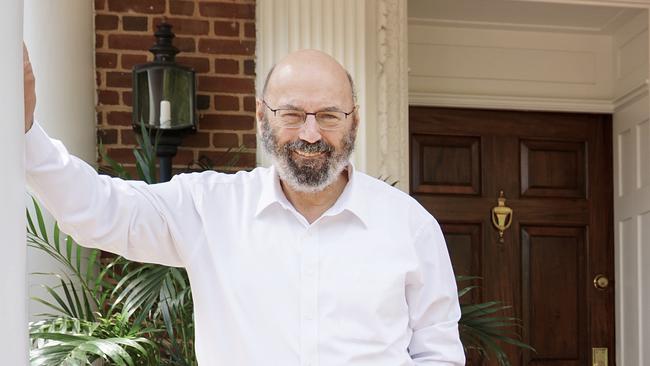
Sinodinos believes that Biden’s commitment to the Indo-Pacific has been all the more impressive because it has continued to grow despite the major distraction of the Ukraine war.
“Biden has been very quick to reach out to partners in the Indo-Pacific such as Australia, Japan, Korea and others, and that continues to be the case notwithstanding challenges like the Russia-Ukraine conflict,” he says.
He cites as examples the elevation of the four-nation Quad to the leaders’ level, the US embrace of the three-nation AUKUS pact, and the summits in Washington this year with ASEAN leaders and with the Pacific island nations.
For Sinodinos, perhaps the most striking example of growing US commitment to the region has been in the South Pacific, where the US and Australia are seeking to blunt China’s attempts to strike economic and security deals with Pacific island nations.
“Not only is the US putting more resources into the Pacific but they are making a genuine effort to listen to the countries in the region, and this is exemplified by the Pacific Islands Summit where the President brought them to the White House,’’ he says.
Biden used that summit, in September, to launch the Pacific Partnership Strategy, the first national US strategy for the Pacific Islands. The US has tried to employ whatever it can to win the hearts and minds of Pacific island leaders such as Solomon Islands leader Manasseh Sogavare, many of whom are being wooed by Beijing.
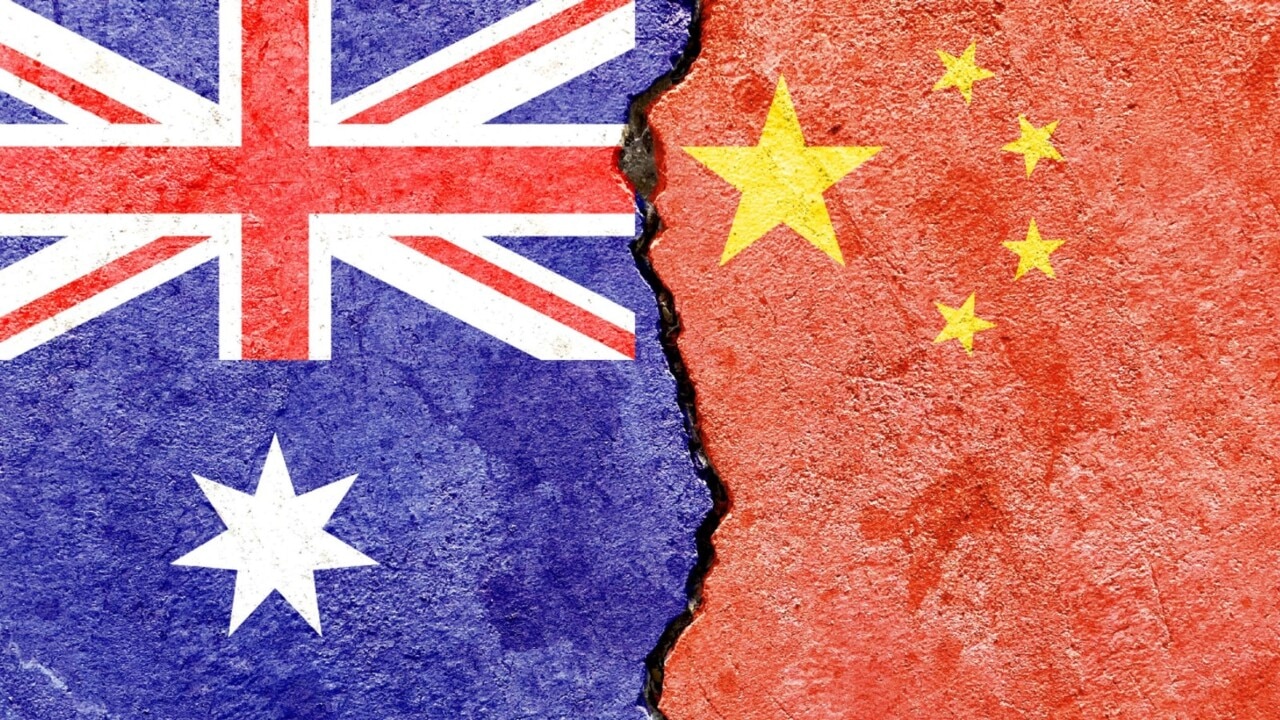
The US and Australia are founding members of a new multi-nation pact including Pacific island nations called the Partners in the Blue Pacific – a collective aimed at better co-ordinating initiatives to boost “prosperity, resilience, and security in the Pacific”.
According to Sinodinos, these new measures and initiatives are not just window dressing, but are markers of a more permanent US presence in the Pacific Islands.
“The US went through a period where it was taking less interest in that part of the world and some of its diplomatic missions were being closed down,” he says. “But because various areas of the globe have increasingly been contested, the US realises that if it wishes to promote the rules-based global order you’ve just got to be there.” Sinodinos says that what the US and Australia are now doing in the South Pacific is not just a reaction to short-term strategic trends but is instead setting in place long-term ways to partner with island nations to secure their future. He says the US intends for its engagement to continue regardless of who is in the White House or who controls congress.
“It is really about creating an ongoing, durable American presence in the region,’ he says. “A series of programs that are sustained through time and are not dependent on one or another administration in the White House.”
Sinodinos says Australia’s closer co-operation with the US in the region has further helped to strengthen the Australia-US alliance. “I’ve never seen a time where it has become this close and where we are seeking to operationalise the relationship in many ways,” he says.
“It’s about approaching the challenges of the Indo-Pacific in a more multifaceted way, in a more sophisticated way and in a way that is all about promoting what we are for, rather than what we are against.”
In Washington, Sinodinos says Australia enjoys strong support from both sides of politics where there is “a lot of admiration for the fact we are prepared to stand up for our own values and interests”.
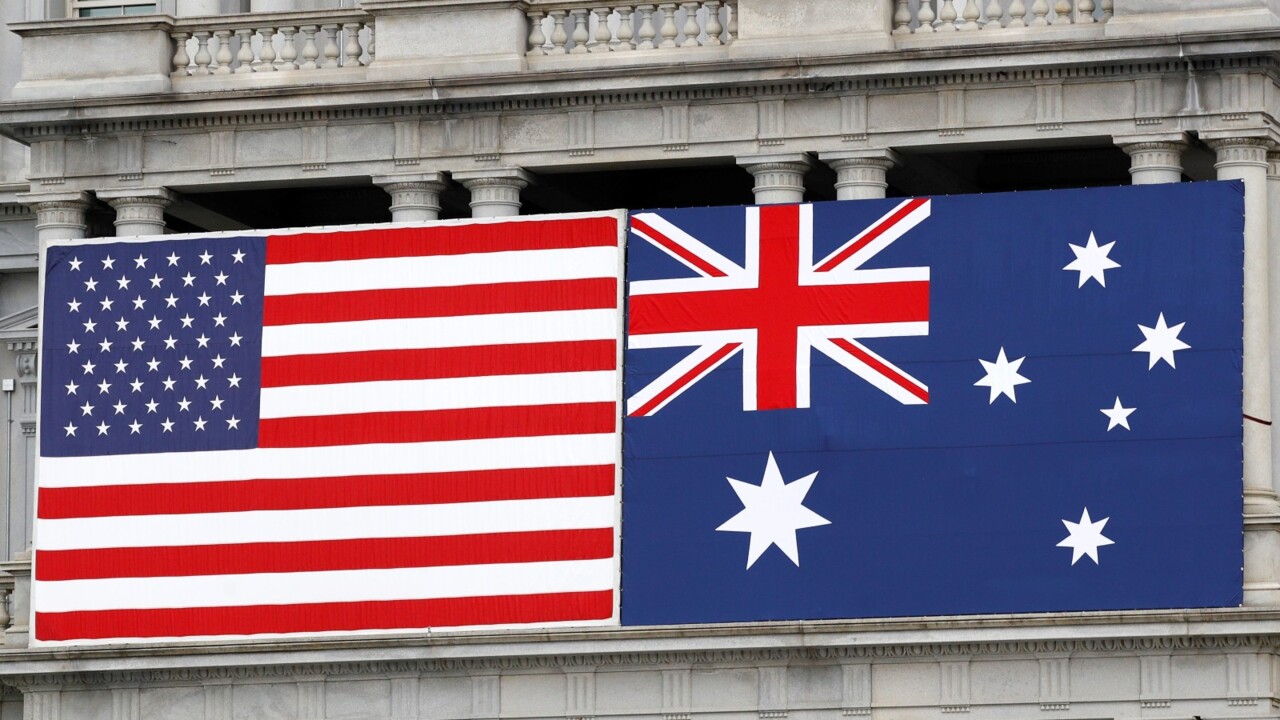
He doesn’t say this, but he is clearly referring to Australia’s willingness to stand up to China in recent years on issues such as foreign interference laws, the ban on Chinese telco Huawei and calls for an investigation into the origins of the coronavirus pandemic – policies which saw China impose heavy trade sanctions on Canberra.
He says support in Washington for the AUKUS pact remains strong across the administration, the Pentagon and the congress as Australia moves closer to a decision on how it will acquire nuclear-powered submarines.
“Don’t forget we have been given the crown jewels, the nuclear technology. That speaks to the level of trust that they have in us,” says Sinodinos.
Sinodinos plays down the notion that there are any tensions in the alliance relationship, but he does point to some differences of opinion – particularly over Australia’s desire for the US to join the Trans-Pacific Partnership Agreement.
“But clearly in 2016, both sides of politics here in the presidential election walked away from the TPP and since then we and others have lobbied the US to return. They don’t rule it out for the future but it’s not on the table for the moment,” he says.
When asked about the US midterm elections, Sinodinos is coy about making firm predictions or commentating at length on US domestic politics.
“You would say at the moment that the odds are for the Republicans to take the House of Representatives, while the Senate remains on a knife-edge,” he says.
But he says Republicans are likely to benefit from a renewed focus by voters on bread-and-butter issues such as inflation, the cost of living, and petrol prices.
“These issues have been at the front of mind for many people and I think these are some of the issues upon which Republicans have been strong in the campaign.”
He says the Democrats’ campaign has focused more on Biden’s legislative achievements, including infrastructure laws and other economic measures to ease the transition out of Covid.
Support for the Democrats was also bolstered by the public reaction to the Supreme Court’s ruling to overturn the landmark Roe v Wade abortion law.
Sinodinos says only one outcome is certain – whichever party controls congress next week will fully back Washington’s ongoing commitment to a strong and durable alliance with Australia.


